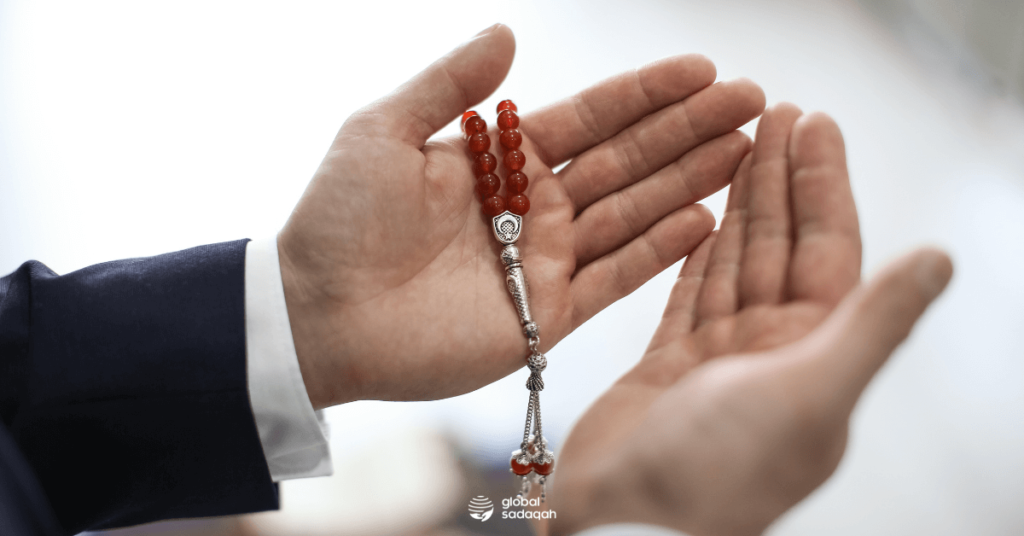How long does it take for a behavior to become a habit? According to a 2009 study published in the European Journal of Social Psychology, it takes 18 to 254 days for a person to form a new habit. While on average, it takes 66 days for new behaviors to turn automatic.
Similarly, last Ramadan has allowed Muslims the opportunity to develop or form good habits such as praying regularly, controlling one’s temper, being more patient, and so on.
The Ramadan experience is not just about being an experience, but it is also meant to be an actual motivation to spike a change in one’s lifestyle with hopes that it would eventually be adopted over the month and into the rest of the year.
For instance, the Quran is only visited once a year and, upon completion, is placed back on the shelf. Similarly, the Salah of the night and fasting are also not continued and practiced when tarawih ends and the fasting obligation is over.
The question is, would we be able to maintain these habits post-Ramadan? How does one hold on to these good practices after the month has concluded?
InshaAllah, we can. But of course, we may slip up from time to time. After all, the drive and spirit of Ramadan that pushes you to do good may not be as strong in other months.
Nonetheless, here are a few things you can do to maintain the good habits you picked during Ramadan.
1) Continue practicing voluntary fasting
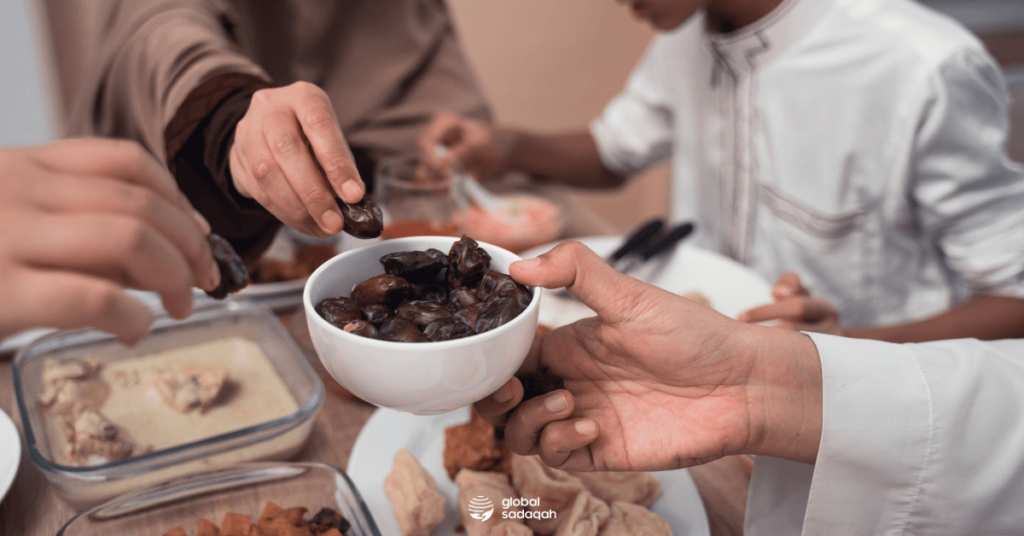
Though fasting is obligatory during Ramadan, Muslims can also fast on days outside of the holy month and be rewarded.
While fasting is an obligatory act in the month of Ramadan, it still carries a heavy reward outside of the blessed month and is described as a shield that protects Muslims. (Sahih al-Bukhari, 1894).
In Hadith Qudsi, Allah (SWT) says: “Every deed of the son of Adam is for him, except fasting; it is for Me, and I shall reward for it” (Al-Bukhaari, 1761).
There are plenty of voluntary fasting practices that one could adopt even after Ramadan has ended, the first of which is the fast of six days in Shawwal, the month following Ramadan.
According to a hadith from Abu Ayub al-Ansari RA, the Prophet PBUH said:
مَنْ صَامَ رَمَضَانَ ثُمَّ أَتْبَعَهُ سِتًّا مِنْ شَوَّالٍ كَانَ كَصِيَامِ الدَّهْرِ
“Whoever fasts during the month of Ramadan and then follows it with six days of Shawwal will be (rewarded) as if he had fasted the entire year.” Sahih Muslim (1164)
Other voluntary fasts to practice throughout the year include fasting on Mondays and Thursday, which are part of the Prophet’s sunnah.
From Abu Hurairah RA, the Prophet PBUH said: “Deeds are presented on Monday and Thursday, and I love that my deeds be presented while I am fasting.”
تُعْرَضُ الأَعْمَالُ يَوْمَ الِاثْنَيْنِ وَالخَمِيسِ، فَأُحِبُّ أَنْ يُعْرَضَ عَمَلِي وَأَنَا صَائِم
Sunan al-Tirmizi (747) [Imam al-Tirmizi states the status of this hadith is hasan gharib]
From Usamah bin Zaid, the Prophet PBUH said: “Those are two days in which deeds are shown to the Lord of the worlds, and I like my deeds to be shown (to Him) when I am fasting.”
ذَانِكَ يَوْمَانِ تُعْرَضُ فِيهِمَا الْأَعْمَالُ عَلَى رَبِّ الْعَالَمِينَ، فَأُحِبُّ أَنْ يُعْرَضَ عَمَلِي وَأَنَا صَائِمٌ
Sunan al-Nasa’ie (2358)
Other notable dates where Muslims are encouraged to fast include:
The Prophet (pbuh) also observed the fast of the 10th day of Muharram (‘Ashura) (Sahih al-Bukhari, 1892).
- The fasts of the white days (the 13th, 14th and 15th of a lunar month). The reward for these fasts is said to be like fasting for the entire month as it is tenfold. (An-Nasai, 2424/ al-Bukhari, 1975).
- Fasting on the day of Arafah (9th of Dhul-Hijjah) is said to cleanse the sins of the preceding year and the current year (Sahih Muslim,1162).
- The Prophet fasted in most of the month of Shabaan except for a few days. (Muslim, 1156).
- According to a hadith from the Prophet (pbuh) he also said that “the most beloved fasting to Allah was the fasting of (the Prophet) David who used to fast on alternate days.” (Sahih al-Bukhari, 3420)
Related: Ramadan: The Month Of Mercy
2) Set a time to recite and internalize the Quran
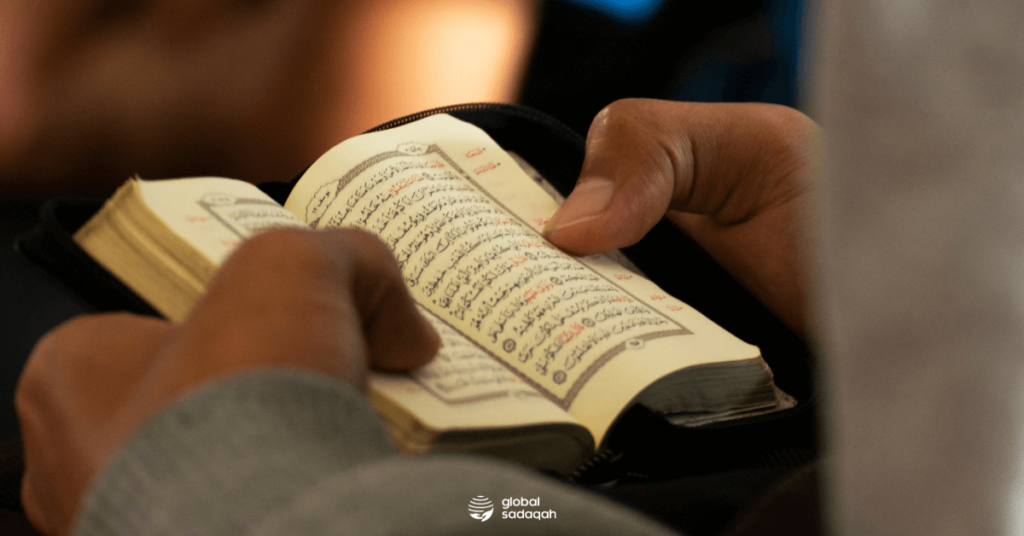
The recitation of the Quran is often adopted heavily in the month of Ramadan as it is a common practice for Muslims to rush to finish the holy book by the end of the month.
However, the recitation and internalization of the Quran shouldn’t just be limited or prioritized during the holy month. It is also important that this good habit is reflected during the rest of the year as Muslims should live their lives by the holy book.
The Quran is designed with the necessary information for us to lead a content life and is meant to be recited, understood, and adopted in everyday practices by Muslims.
The Prophet (pbuh) said: “The best among you are those who learn the Qur’an and teach it.” (Sahih al-Bukhari, 5027).
Furthermore, the benefits of reciting the Quran are immense beyond its ability to inspire tranquility and peace. The Prophet (pbuh) said: “Whoever reads a letter from the Book of Allah will have a reward. And that reward will be multiplied by ten. I am not saying that ‘Alif, Laam, Meem’ is one letter, rather ‘Alif’ is a letter, ‘Laam’ is a letter and ‘Meem’ is a letter.” (Tirmidhi, 2910)
The Quran also intercedes on behalf of the one who reads it on the day of judgement (Muslim, 804). This is why Muslims need to develop a habit of including the Quran in their daily routines and making it an essential part of one’s life.
A good practice that can be adopted throughout the year is to read several pages of the Quran each day based on one’s capacity and time.
It is the Sunnah of the Prophet to recite Surah Al-Kahf on Fridays, and is said to bring tranquility (Sahih al-Bukhari, 5011), and acts as a light for those who read it until the next Friday. The Prophet (pbuh) said: “Whoever reads Surah Al-Kahf on the day of Jumu’ah, will have a light that will shine from him from one Friday to the next. (Saheeh al-Jaami, 6471).
You could also try to adopt good daily habits that were practiced by the Prophet (pbuh). For instance, he did not sleep until he recited Surah al Mulk. (Sunan al-Tirmidhi, 2892). The surah has been cited to have many benefits as reported from the Prophet (pbuh) “a surah of the Quran containing thirty verses will intercede its reader till he will be forgiven. That is: “Blessed is He in Whose Hand is the sovereignty” (Surah 67) (Sunan Abi Dawud, 1400).
Support The First Complete Translation Of The Quran Into Rohingya Language
3) Continue to perform voluntary Salahs
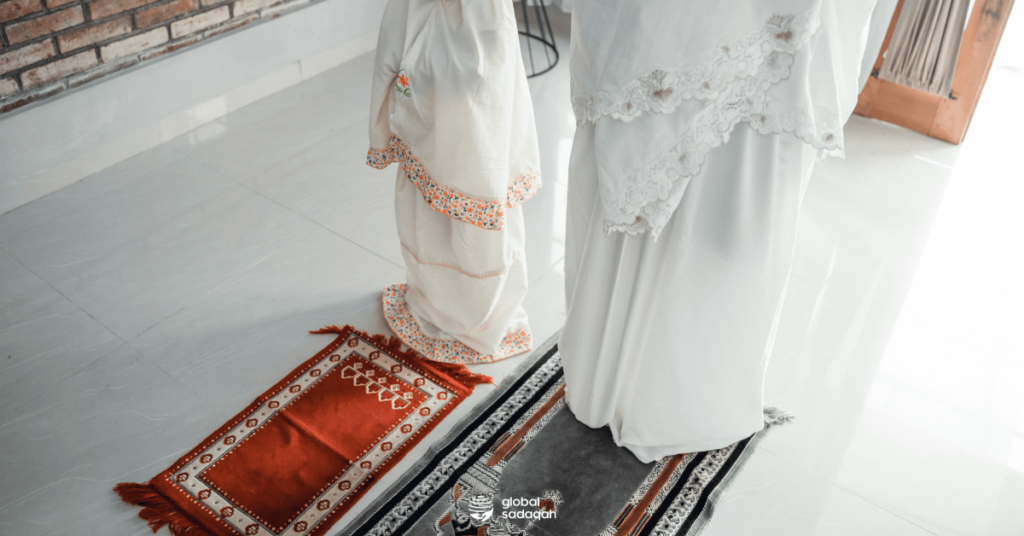
Although most of us perform Taraweeh and Tahajjud consistently and heavily during the Ramadan period, the prayer of the night (Qiyamullail) brings many values, blessings and rewards and when adopted into one’s life as well.
The Prophet (pbuh) said: “Upon you is (to perform) Qiyamullail, for it is the habit of the righteous before you. And it will bring you closer to your Rabb, and expiate for bad deeds, and prevent sin.” (Al Tirmidhi, 3549). Qiyamullail is said to be the best prayer after the obligatory prayers (Sahih Muslim, 1163).
Qiyamullai or Qiyam gives Muslims an excellent opportunity to make dua as mentioned by Prophet Muhammad (pbuh). “There is an hour during the night in which no Muslim individual will ask Allah for good in this world and the next without His giving it to him, and that applies to every night.” (Sahih Muslim, 757).
In the Quran, those who pray Qiyam are described to be lifted to a higher status of praise and glory than those who do not. Allah (SWT) says in the Quran “Is the one who is obedient to Allah, prostrating himself or standing [in prayer] during the hours of the night, fearing the Hereafter and hoping for the mercy of his Lord [like one who disbelieves]? Say: ‘Are those who know equal to those who know not?’ It is only men of understanding who will remember. (Qur’an: 39:9)
The beauty of performing Qiyamullail is that it is an individual and personal pursuit that is private between the person and Allah. Performing the Qiyam doesn’t have to be a tiring or difficult task as one can start slowly by praying two Rakaat a night whenever possible. From there, all you have to do is to try to maintain some form of consistency. For many of us, it is a privilege to stand in supplication compared to the many who aren’t able to. .
Emergency Relief: Massive Floods Wreak Havoc In Yemen
4) Continue giving Sadaqah
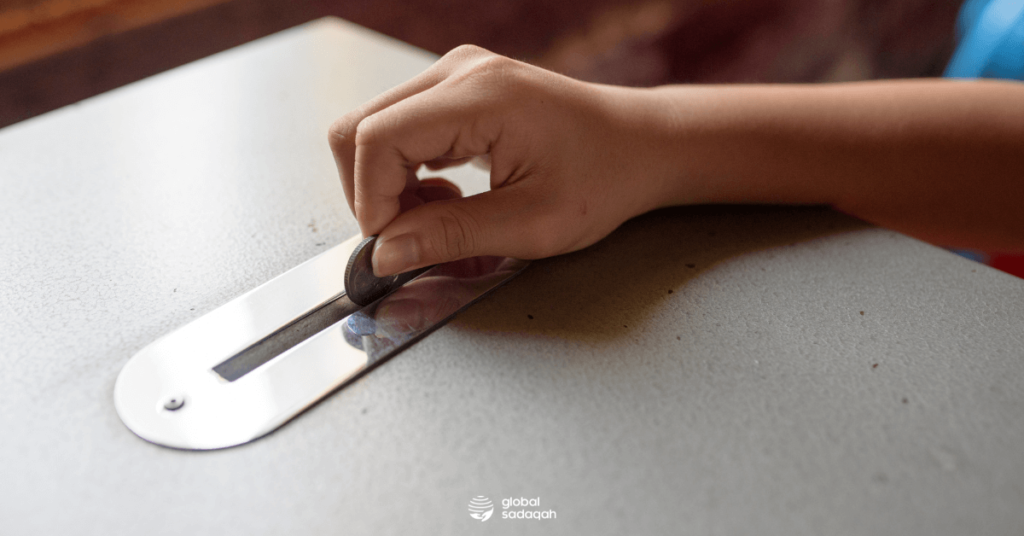
If you’ve been giving sadaqah regularly because of the holy month, we suggest you continue to keep the sadaqah flowing. There are many causes that you can donate to outside of Ramadan. By the way, you can provide emergency help and medical aid for our Palestinian brothers and sisters who are attacked by the Israeli occupation here.
Narrated by Abu Sa’id al-Khudri, the Prophet (pbuh) said: ‘A man giving a dirham as sadaqah (charity) during his life is better than giving one hundred dirhams as charity at the moment of his death. (Sunan of Abu-Dawood Hadith 2860)
There’s great joy and fulfilment to be gained from the act of giving. Give your time, money, knowledge or help to someone, it will sure to not only leave a smile on your face, but also help you in the Hereafter too, inshaAllah. A small gesture of kindness goes a long way.
If you are looking to leave an impact in your local community, you can volunteer at a shelter house or help out at an old folks home.
Not only is helping others rewarding from a religious standpoint, but it can also increase your overall sense of happiness and satisfaction.
Related: Islam and Charity
Covid-19 Emergency: Help India Breathe donate now button
5) Continue to make Dua and to ask for Allah’s guidance
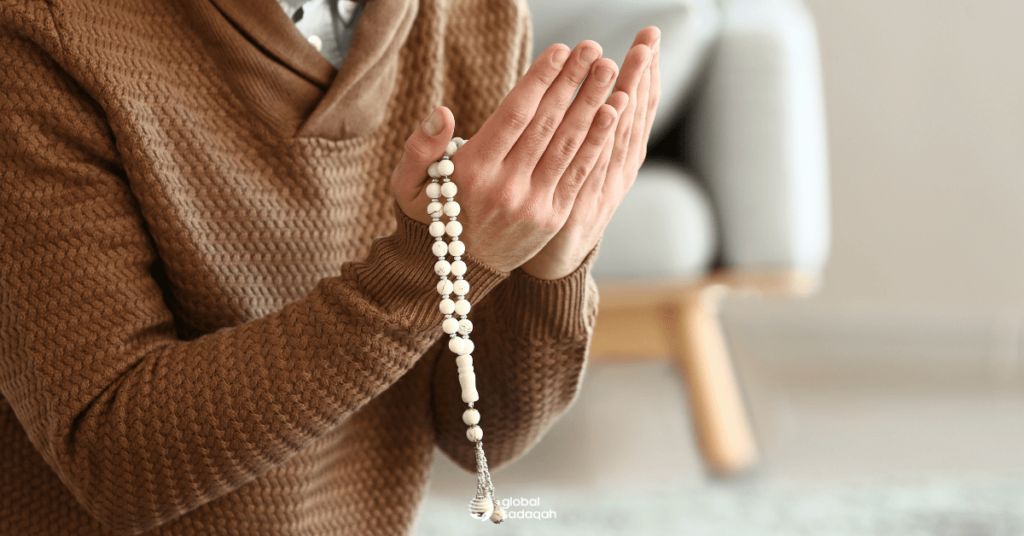
If you’ve been making dua consistently and heavily last Ramadan, then it’s good practice to continue this practice. Don’t give up on your Duas, and god willing Allah (SWT) will grant them.
As Muslims, we hear and learn about the power of Dua in many stories in the Quran. This is why we should always have faith in the Almighty granting our Duas.
When praying, always ask for His guidance and refuge in your daily quests and seek His forgiveness and refuge from hellfire.
Continue practicing good habits and evaluate yourself weekly
There are many habits that one can opt to hold onto after Ramadan. At the end of the day, it’s just a matter of rearranging responsibilities and setting commitment. These habits are excellent additions to our lifestyles as they carry incredible rewards and could be gradually adopted over time. All one has to do is have the proper intent and take the first step.
It’s also important that you continue to evaluate your habits in the long term to see how well you’ve been keeping your habit in practice or if you’ve been slacking. If weekly sounds like too much of a chore, you can also opt to check in with yourself every month.
We wish all our Muslim brothers and sisters good luck in maintaining good habits throughout the year. May Allah accept our good deeds.
